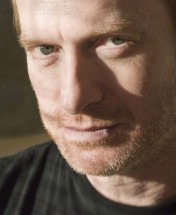A Visionary of Self-Expression: An Interview with Photographer Janusz Kawa
GALO: When you are not on commission, what do you enjoy photographing?
JK: I always photograph people, landscapes and nudes, trying to capture moments, emotions, and feelings.
GALO: I noticed that a lot of your photographs are black and white. Do you have a preference for this type of photography? Do you feel it manifests the subject’s emotions better?
JK: Yes. As I mentioned before, I was influenced by German Expressionism film and film noir, which has very striking black and white stark photography. I adopted that style and it became my signature. I think black and white always leaves something to interpret, rather than color that always gives a sense of reality.
GALO: Are there any photographers that you personally admire?
JK: I like very much the work of Alfred Stieglitz, Manuel Alvarez Bravo, Ralph Gibson, [and] Josef Koudelka. And fashion photographers such as Peter Lindbergh, Guy Bourdin, Deborah Turbeville, and Paolo Roversi.
GALO: You’ve been teaching photography courses for many years now throughout your expansive career. I believe that currently you teach a course at the School of Visual Arts. What do you enjoy most about teaching? Does this process help you in any way with your own photography work?
JK: I enjoy teaching very much. Teaching has kept me very much abreast in the very fast moving technology of today’s photography. It helped me to grasp it and be comfortable with it. To know that you can change somebody’s life through teaching, it’s very rewarding.
GALO: You yourself studied photography at the School of the Art Institute in Chicago. Do you feel that education in artistic fields like that of yours is a necessity or do you think that raw talent is enough to drive a person to success?
JK: Good art school certainly opens up your mind. But I think any artist can succeed on their own if they are dedicated, talented, and driven enough.
GALO: I’ve often come across the saying; “It’s not the camera that is of importance, but the person behind it in order to take a good photograph.” Do you believe this to be true?
JK: Oh yes, it is essential. [A] camera is only a tool to recreate one’s vision and concept. One has to pre-visualize the image and execute it with the camera and certain technique.
GALO: In your opinion, what would you say is the most important thing to remember when aiming to capture an image?
JK: When photographing people, I always look for some kind of emotion, the psychological state of the subject, and how to transcend that state through my camera, lighting, and composition into a visual language.
GALO: It seems that nowadays everyone has a digital camera. Do you feel that this takes away from the art form and creates a stepping-stone for professional photographers? Where do you see the future of photography heading?
JK: Certainly the fact that everyone has a camera today makes everyone feel that they are photographers. But professional photography is different, because you have to have trained eye, technique [as well as] be able to recreate certain lighting, and be able [to] work consistently for a very long period of time. True artist has to have a certain signature style, and that is difficult. I think that photography in itself has not changed much except there is a different technology involved. But to create truly engaging images, it’s still a challenge, and it always will be. Somebody with a pen is not necessarily a writer, or someone with a video camera, a filmmaker.
GALO: Is there a genre of photography that you do not like?
JK: I don’t think there is a particular genre that I dislike, but a good photograph must have some emotional impact on me. If it does not, it leaves indifferent, and I might say I don’t like it.
GALO: Are you striving toward a particular goal that you have set for yourself? Perhaps attaining certain equipment or a certain subject that you’d like to photograph?
JK: As an artist, I strive just to be able to continue shooting, and stay interested and inspired. I would like to publish a book.
GALO: Lastly, what are your plans for the near future? Have you thought about exhibiting in Poland?
JK: I would love to exhibit in Poland if someone invites me to do so. I have had exhibitions in the US, France and Mexico, but I haven’t been contacted by Polish galleries yet.

